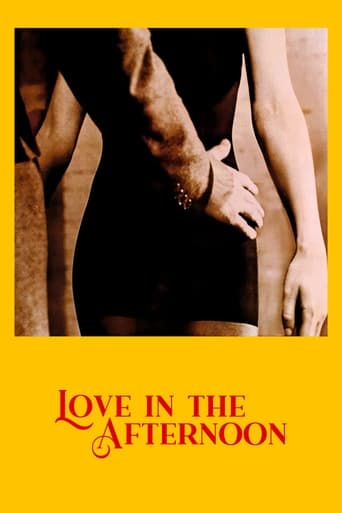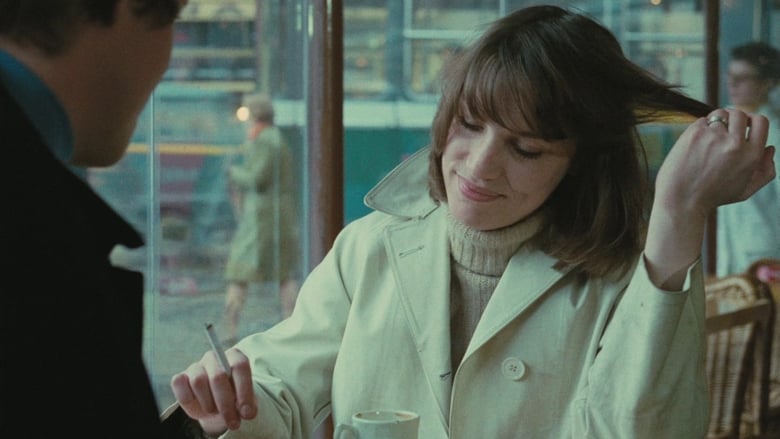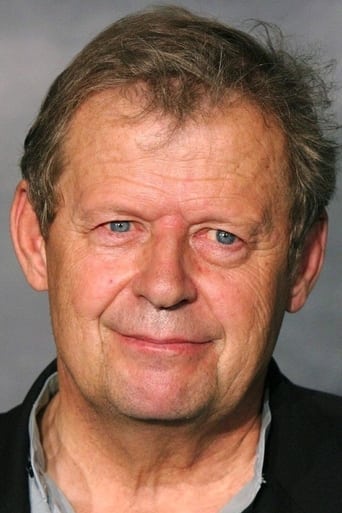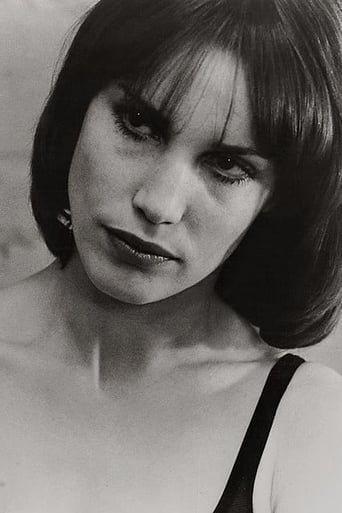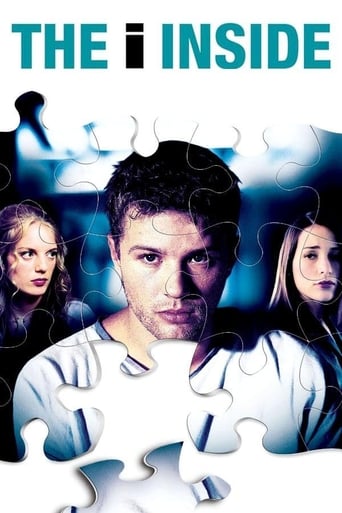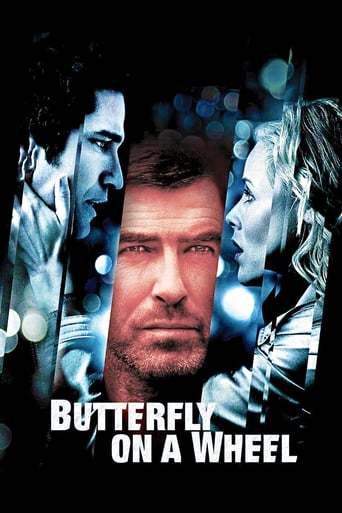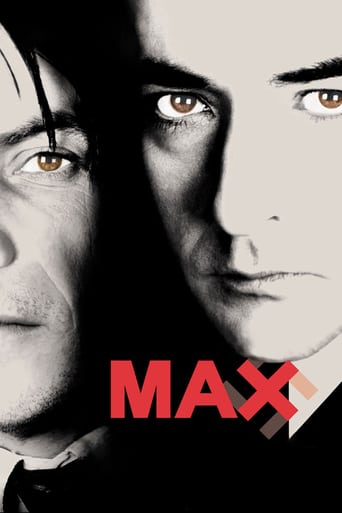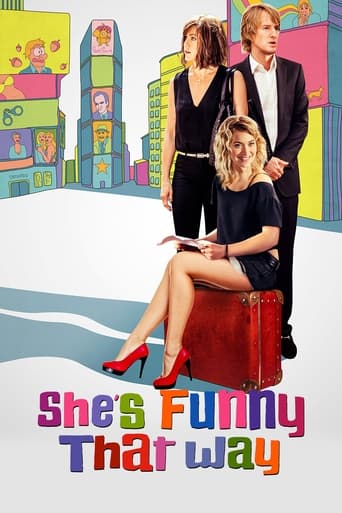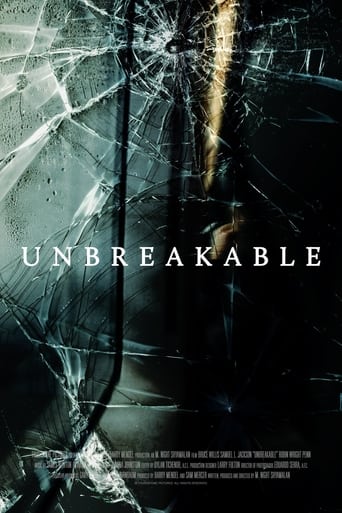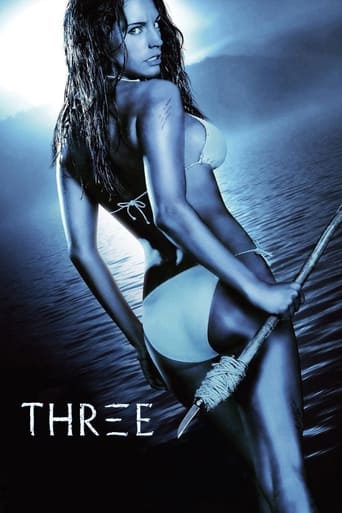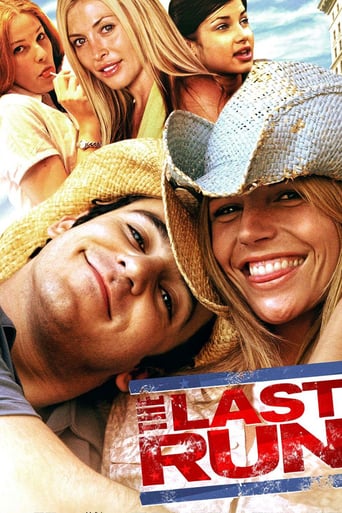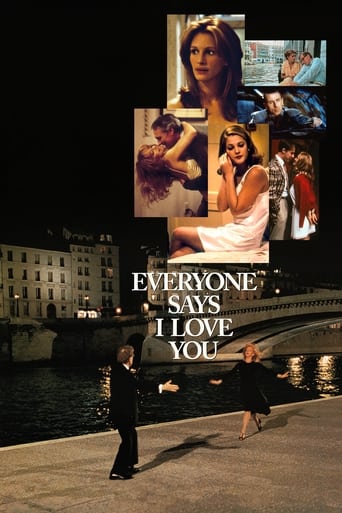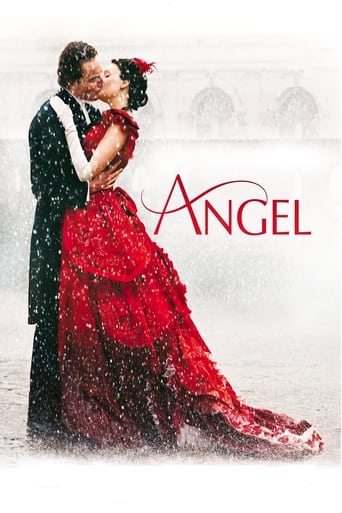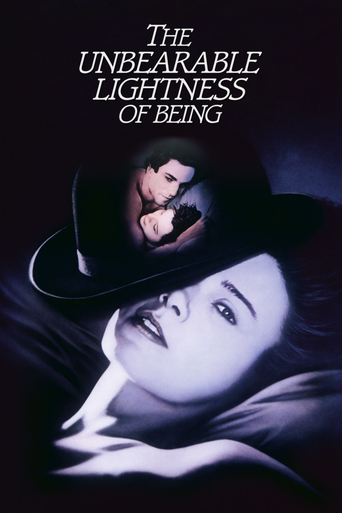Love in the Afternoon (1972)
The last of Rohmer's Six Moral Tales. Frederic leads a bourgeois life; he is a partner in a small Paris office and is happily married to Helene, a teacher expecting her second child. In the afternoons, Frederic daydreams about other women, but has no intention of taking any action. One day, Chloe, who had been a mistress of an old friend, begins dropping by his office. They meet as friends, irregularly in the afternoons, till eventually Chloe decides to seduce Frederic, causing him a moral dilemma.
Watch Trailer
Free Trial Channels
Cast


Similar titles
Reviews
Although it has its amusing moments, in eneral the plot does not convince.
If the ambition is to provide two hours of instantly forgettable, popcorn-munching escapism, it succeeds.
if their story seems completely bonkers, almost like a feverish work of fiction, you ain't heard nothing yet.
It’s not bad or unwatchable but despite the amplitude of the spectacle, the end result is underwhelming.
I have been all over the map with the Six Moral Tales. In this one, a very handsome man who seems fixated on all attractive women (at times he is such a self-centered snob) and who has a waif-like wife and child at home, finds he is being pursued by the lover of a former friend. They begin a relationship, meeting in afternoons while he is supposedly at work. His job allows him freedom to roam while his wife is mostly at home. What happens between them is a continuous conversation about his right to do what he is doing. She is a strong, almost masculine woman (still quite attractive and sexy) and she allows him to be introspective all along the way. This becomes more a discussion on morals and the state of the world when it comes to how men and women treat each other, than a story of romantic interlude. Of course, one who sees this in isolation and knows nothing of Eric Rohmer, would first find it a bit dull, and then probably say how unrealistic it is. But a point is made. I saw all six of these films many years ago and am now looking at them more closely.
I have to admit that I was not really impressed with my first Rohmer experience: Les amours d'Astrée et de Céladon. Maybe I should view it again after seeing some more of his films. And, here I am watching the last film in a series (Rohmer's Six Moral Tales). I will watch the rest, but this supposed to be the best.What we have here is an eternal question. Frédéric (Bernard Verley) loves his wife Hélène (Françoise Verley), but wonders if he would have made a different choice. So, he spends his time admiring women on the street and speculating. He even imagines he has a magical device that robs the women of their free will.Chloé (Zouzou), an acquaintance from the past, shows up one day and she and Frédéric spend a lot of time together. It goes beyond flirting, but never to sex. She tells him she wants him to father her child. I am not sure whether she really wants a child, or if she just wants to see if she can get him in bed. He wants to maintain the friendship.The ending was very emotional, and satisfying.
Like all Rohmer's films I've seen, this one is "just" a story, told as by a storyteller, without any of the visual cinematic items that usually make of a film a "movie". The only "special effects", here, are visual, and consist of beautiful women...So, it's the story that I will comment on.For me, the story is the genesis of an avalanche, the explanation of how you can get from A to Z, where Z is so far away from A that you really need to pass through all the intermediate steps: an avalanche that gains, slowly, speed, as you move gently from A to B, C, D, and than, a little more unexpectedly, to E, F, G. down to all the furthest and most extreme letters of the alphabet.No, not the Z, though.It is extremely difficult to imagine how, or why, a happy man, with one child and another coming, and a beautiful wife, would want to make pregnant an old friend of his, who has no intention - or so she says - of having a lasting or meaningful relationship with him.Here the intermediate letters of the alphabet consist of the reappearance of an old friend, of a mild crisis of a man who was accustomed and able to choose beautiful women and that now "only" has his wife, of a sort of boredom that appears in his empty (although business-filled) afternoons, and of course of the challenge that all this comports. Step by step, although improbable, he is taken almost down to the most extreme consequence, until he remembers of being a proud father, in the most beautifully (and perhaps only) cinematic act of the film, while he pulls out his jumper, and by doing so he remembers of a playful day at home. Yes, home, that sacred thing that he manages, finally, to save and preserve from that avalanche that ran over his afternoons.Marco
The biggest flaw in most Rohmer films is their talkiness. If you doubt this, I suggest you start with "Autumn Tale," which opens with a half hour conversation in the middle of a field. It's one of the most excrutiatingly boring stretches of cinema I've ever seen.Imagine then my surprise when I viewed this little gem. "Chloe in the Afternoon" is still a talk film and Rohmer isn't able to generate the visual excitement that some directors can, but don't let that deter you. The dialogue (and narration) get to the point, while Rohmer's relaxed approach to pacing and visual style are here a virtue. I didn't think him capable of a film this good.

